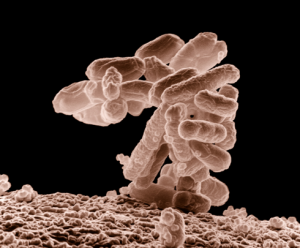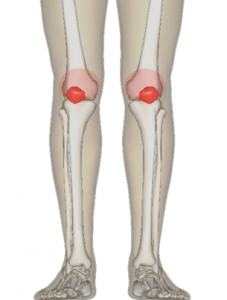That sharp pain we feel in our knees after jumping rope, the pains we feel in our elbows after shooting all of those foul shots, even the pain we feel in our fingers while typing AP Bio Blog Posts. You all know this feeling of joint pain I’m talking about, and if you don’t right now, you will in 15-20 years… trust me. Professionals aren’t entirely sure of the real causes regarding joint pain leading to rheumatoid arthritis, but an emerging body of research is focusing on a potential culprit: the bacteria that live in our gut.
Many recent studies have found intriguing links between our gut microbes, rheumatoid arthritis, and other diseases in which the body’s immune system goes wrong and attacks its own tissue. Microbes are especially influential in the gut and as the pathway for digestion, the gastrointestinal tract must deal with a constant stream of food-related foreign microbes, which must be monitored and, if they are harmful, destroyed. To do this, our intestines have developed an extensive immune system, whose effects reach far beyond the gut. Immune cells in the gut seem to be able to activate inflammatory cells throughout the body, including in joints. A study published in 2013 by Jose Scher, a rheumatologist at New York University, found that people with rheumatoid arthritis were much more likely to have a bug called Prevotella copri in their intestines than people that did not have the disease. In another study published in October, Scher found that patients with psoriatic arthritis, another kind of autoimmune joint disease, had significantly lower levels of other types of intestinal bacteria.
Over the past several years, scientists have collected a growing collection of evidence stating that many of these bugs may have a major effect on our well-being. Some trigger chronic, non-infectious ailments such as rheumatoid arthritis while others actually prevent against such diseases. But while many scientists are confident of the link between the microbiome and arthritis, they haven’t pinned down what particular role bacteria play in triggering the disease. Scher says Prevotella copri may stimulate an immune reaction that then targets joint tissue. Or it may crowd out beneficial microbes that keep immune-system attack cells being too aggressive.
Venna Taneja, an immunologist at the Mayo Clinic in Rochester, Minnesota, who has found clear differences in the bacterial populations of mice bred to be genetically prone to rheumatoid arthritis stats “It’s become more and more clear that these microbes can affect the immune system, even in diseases that are not in the gut.” She has found clear differences in the bacterial populations of mice bred to be genetically prone to rheumatoid arthritis. In those more susceptible to the disease, a species of bacteria from the Clostridium family dominates. In mice without arthritis, other strains flourish, and the Clostridium strains are scarce.
As the years ago on, the study of joint pain and arthritis in correlation with the Gut Microbes will grow and one day these many scientists will figure out a way to work out the negatives of this bacteria and use it solely to a person’s benefit.
Additional Sources and Reading:
http://www.mindbodygreen.com/0-17066/could-your-gut-be-the-cause-of-your-joint-pain.html




Leave a Reply